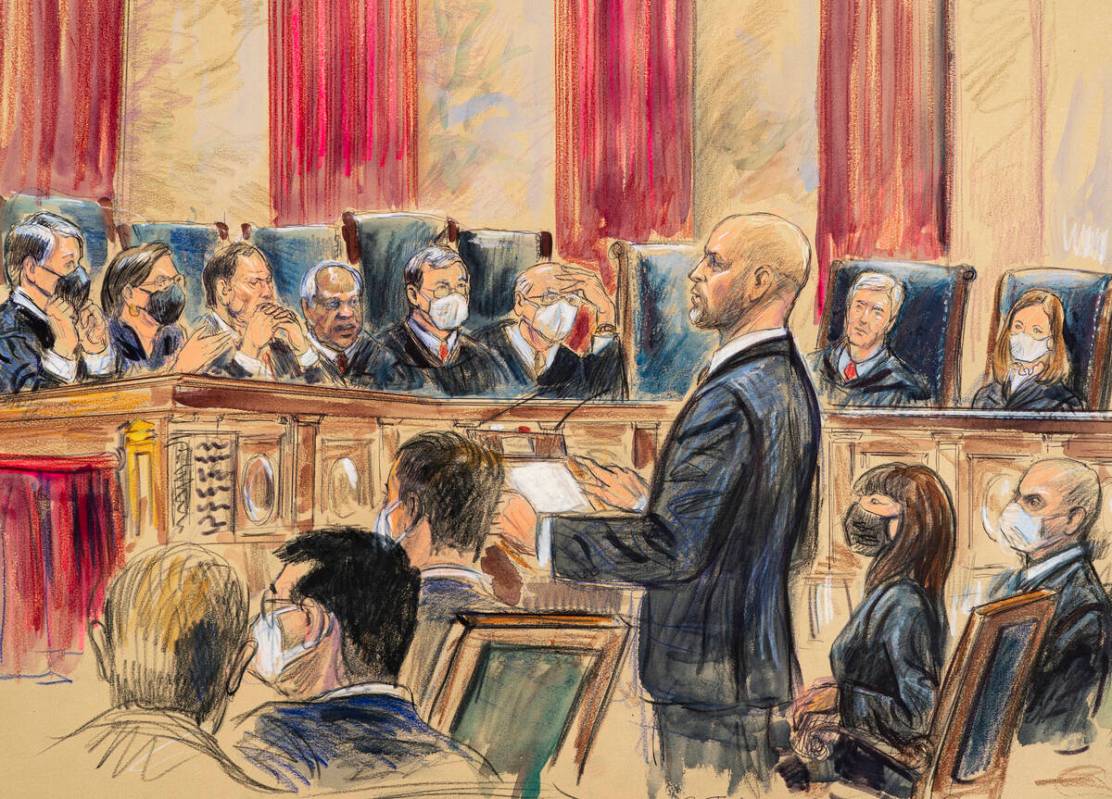Supreme Court stops vaccine mandate for US businesses

WASHINGTON — The Supreme Court has stopped the Biden administration from enforcing a requirement that employees at large businesses be vaccinated against COVID-19 or undergo weekly testing and wear a mask on the job.
At the same time, the court is allowing the administration to proceed with a vaccine mandate for most health care workers in the U.S.
The court’s orders Thursday during a spike in coronavirus cases was a mixed bag for the administration’s efforts to boost the vaccination rate among Americans.
The court’s conservative majority concluded the administration overstepped its authority by seeking to impose the Occupational Safety and Health Administration’s vaccine-or-test rule on U.S. businesses with at least 100 employees. More than 80 million people would have been affected.
“OSHA has never before imposed such a mandate. Nor has Congress. Indeed, although Congress has enacted significant legislation addressing the COVID—19 pandemic, it has declined to enact any measure similar to what OSHA has promulgated here,” the conservatives wrote in an unsigned opinion.
In dissent, the court’s three liberals argued that it was the court that was overreaching by substituting its judgment for that of health experts. “Acting outside of its competence and without legal basis, the Court displaces the judgments of the Government officials given the responsibility to respond to workplace health emergencies,” Justices Stephen Breyer, Elena Kagan and Sonia Sotomayor wrote in a joint dissent.
When crafting the OSHA rule, White House officials always anticipated legal challenges — and privately some harbored doubts that it could withstand them. The administration nonetheless still views the rule as a success at already driving millions of people to get vaccinated and for private businesses to implement their own requirements that are unaffected by the legal challenge.
Both rules had been challenged by Republican-led states. In addition, business groups attacked the OSHA emergency regulation as too expensive and likely to cause workers to leave their jobs at a time when finding new employees already is difficult.
The vaccine mandate that the court will allow to be enforced nationwide covers virtually all health care workers in the country. It applies to health care providers that receive federal Medicare or Medicaid funding, potentially affecting 76,000 health care facilities as well as home health care providers. The rule has medical and religious exemptions.
Decisions by federal appeals courts in New Orleans and St. Louis had blocked the mandate in about half the states. The administration already was taking steps to enforce it elsewhere.
In the healthcare case, only justices Clarence Thomas and Samuel Alito noted their dissents. “The challenges posed by a global pandemic do not allow a federal agency to exercise power that Congress has not conferred upon it. At the same time, such unprecedented circumstances provide no grounds for limiting the exercise of authorities the agency has long been recognized to have,” the justices wrote in an unsigned opinion, saying the “latter principle governs” in the healthcare cases.
More than 208 million Americans, 62.7% of the population, are fully vaccinated, and more than a third of those have received booster shots, according to the federal Centers for Disease Control and Prevention. All nine justices have gotten booster shots.
The justices heard arguments on the challenges last week. Their questions then hinted at the split verdict that they issued Thursday.
———
Associated Press writer Zeke Miller contributed to this report.